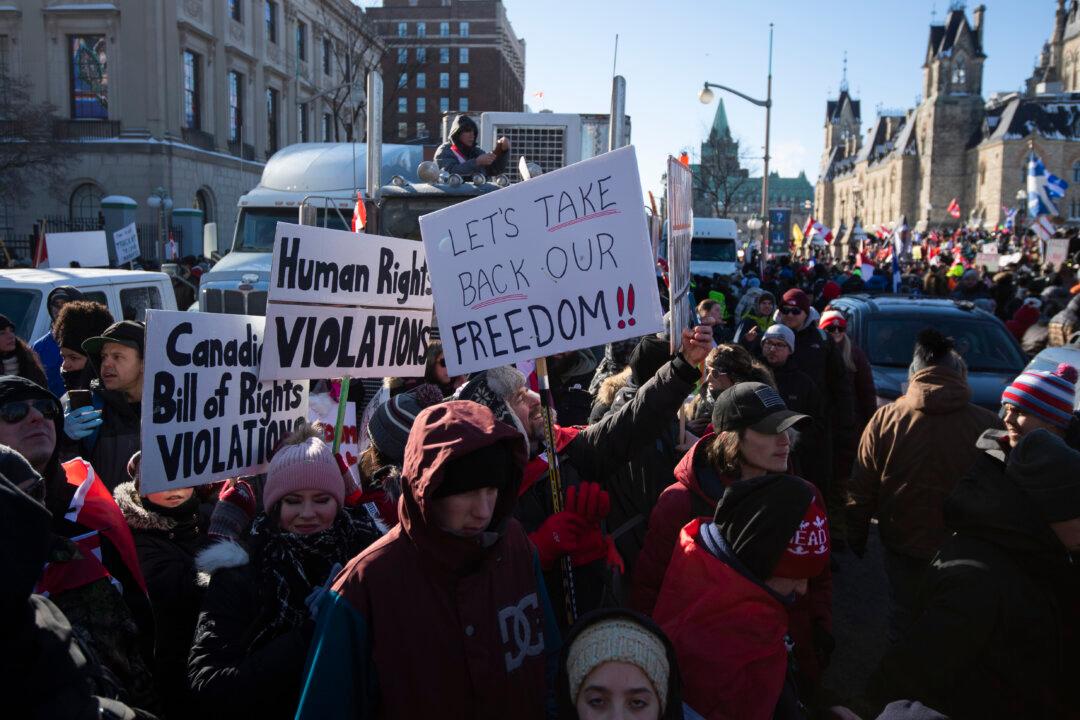The main organizers of the Freedom Convoy have launched a new $2 million lawsuit against the federal government on the two-year anniversary of the Emergencies Act being invoked, claiming that Ottawa violated their Charter rights when invoking the act to end the demonstrations.
“Our goal was, has always been, and will continue to be, holding our federal government agencies and our institutions accountable for breaching the Charter Rights & Freedoms of Canadian Citizens,” protest organizer Tamara Lich told The Epoch Times.





